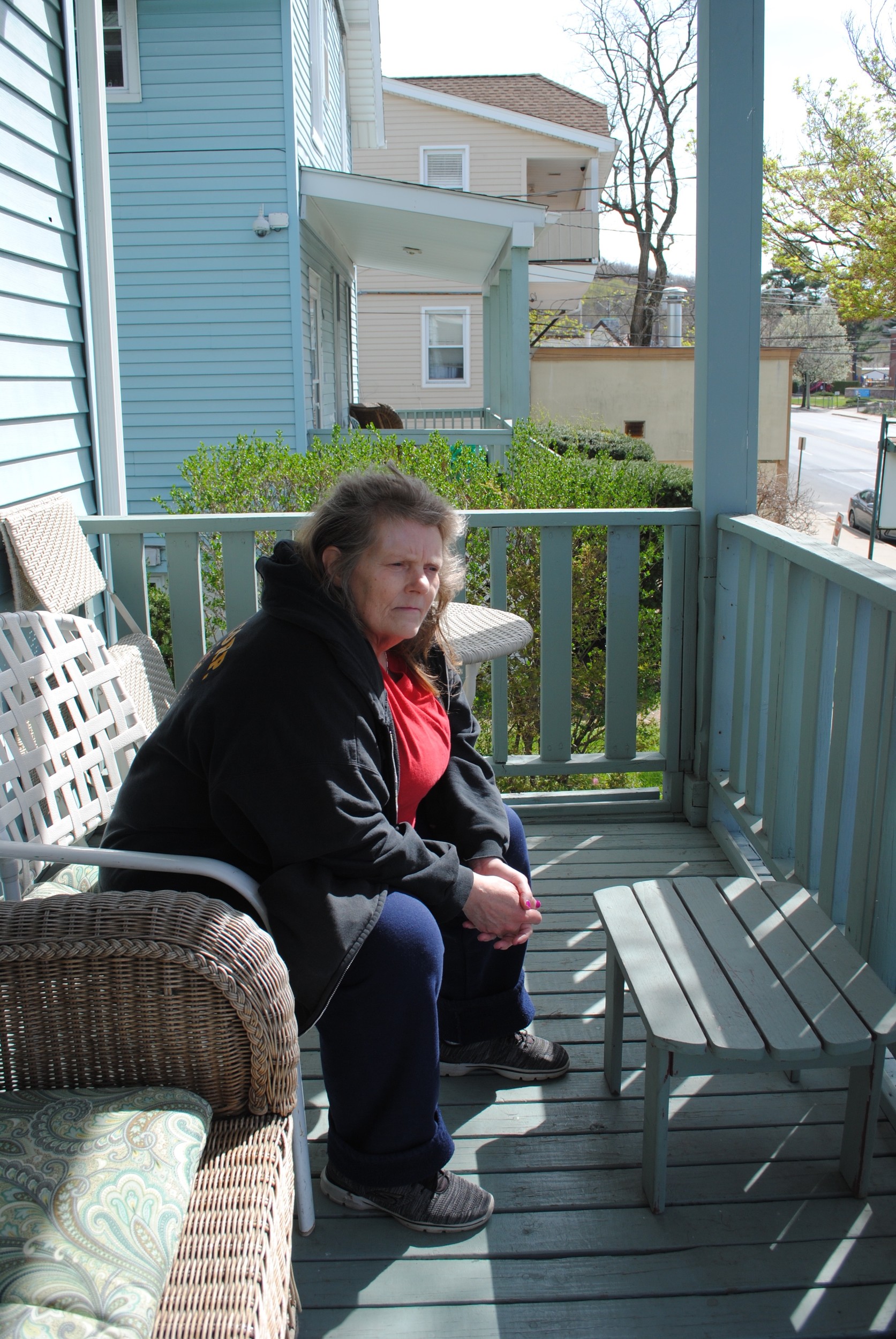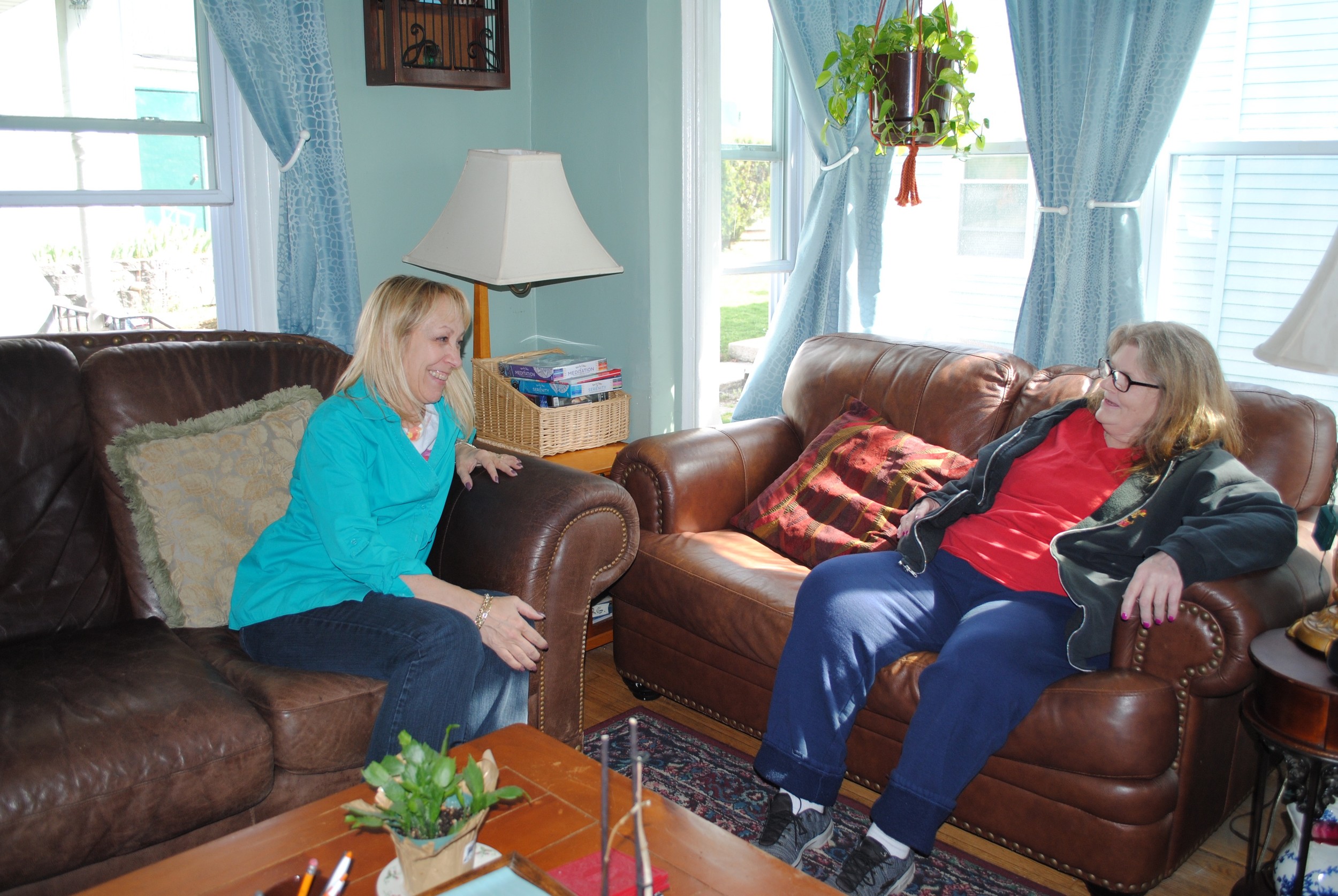Addict finds hope at Living Water
Glen Cove transitional home aids jailed women
A lot can happen in 43 years. Some people raise families. Some people start businesses. Some people travel the world. For Kelly Cavanagh, more than four decades of her life were dedicated to a singular obsession — heroin.
In November 2014, the Long Beach Herald reported that a mother and son were charged in a heroin bust after selling to undercover police several times earlier that year. The mother was Cavanagh. Then, she was the stereotypical image of the addict in her mugshot — emaciated, worn-out. Now she looks nothing like that. Today she is preparing to celebrate one year of sobriety on May 19.
Cavanagh, now 55, called that arrest the rescue that she needed. She got clean for the nine months she was in jail, and it was there that she met Lisa Cohn, the founder and executive director of Glen Cove’s Living Water for Women, a transitional home for formerly incarcerated women. “She had this aura about her,” Cavanagh said of Cohn. “I just connected with her.”
The addict’s life
An addict since her teenage years, Cavanagh was looking for a way to turn her life around after her arrest. Living Water gave her just that. The story of how she finally found help is a long, circuitous one, though.
Back in the 1990s,Cavanagh was already heavily addicted to heroin. At the time, she was living in Long Beach. There, she met her future partner Bill (last name withheld), and in 1992 she became pregnant with their first son. She thought the pregnancy would be the turning point, that she would stop using and get her life back on track for the sake of her son. But she couldn’t stop. The couple named their son Little Bill.
The newborn spent the beginning of his life in a neonatal unit, but he suffered no permanent physical damage during the pregnancy. Cavanagh saw the other babies in the hospital with tubes attached to their bodies, some the size of her hand, and she felt guilty that she had used while she was pregnant. She attended a women’s program in Freeport, where her counselor said she had to shed her shame if she wanted to stay sober, but she needed time to accept the advice. Child Protective Services was involved in Cavanagh’s life from the day her son was born until the day he turned 18.
While Cavanagh said she never forced her son to use, he grew up watching his parents abusing drugs, which led to Little Bill also becoming an addict too. He turned 22 in 2014 — the same year he was arrested with Cavanagh on Thanksgiving in Long Beach. Today he is in an outpatient rehabilitation program in California.
Getting sober
While Cavanagh was in jail, she attended weekly writing and art workshops facilitated by Cohn, of Living Water. “What impressed me about [Cavanagh] is, yes, she’s been using drugs a long time, but there’s no facade,” Cohn said. “She is who she is, and she’s open and honest about it. I value that about a person.”
Upon release from jail, Cavanagh moved into the Living Water transitional home, where she lived for several months. In the fall of 2015, she started going back out with friends and drinking. She had fallen back into her old ways. One night, she returned to the house “stewed,” packed her belongings and moved to Oceanside.
In February 2016, Cavanagh came down with pneumonia and was rushed to South Nassau Communities Hospital in Oceanside, where she remained for a month. While in the hospital, her friends visited. One time, they sneaked heroin, morphine and Xanax to her. Later that day, Cavanagh was in the shower when she dropped the shower gel. Bending down to pick it up, she realized she couldn’t pull herself back up, even using the handicapped rail. The next thing she knew, she woke up in the intensive care unit. Cavanagh had overdosed. “It was kind of like God slapping me in the head,” she said.
Once out of the hospital, Cavanagh was moved to a nursing home in Island Park, where Cohn, of Living Water, visited her. It was there that Cavanagh asked whether she could return to the house, and Cohn agreed.
Cohn understood that Cavanagh wasn’t ready to commit to getting sober the first time that she was at Living Water, but Cohn saw that Cavanagh was committed to a new life after her near-death experience. “She couldn’t lie to me, and I’ve seen that change in her,” Cohn said. “She really wants this, and that’s what I look for in a person.”
In February, after two years of living in a Far Rockaway nursing home, Cavanagh’s partner died at 59 from various health issues, but mostly as a result of decades of drug abuse.
Cavanagh called the fight with addiction a war. “He didn’t make it through the war,” she said of her partner. “That’s what this was — this was life and death, like a war. I made it through the war, and I’m not going back to it anymore.”
Cavanagh tries to stay in communication with friends who use, but she admits it’s hard. “I try to stay in touch with people that tell me, ‘Kelly, I’m ready. Can you help me?’ I wish all my friends would get clean because they wouldn’t believe how awesome it is. I try to stay away from people that are toxic for me because I don’t want to get roped in.”
Now that Cavanagh is sober, she looks back on her life and sees all that she missed while she was high. The woman about to mark a year as sober is not the same person who was arrested with her son three years ago. She’s positive, friendly, and has a keen sense of humor.
Over the past year, Cavanagh enjoyed her first sober Thanksgiving, Christmas and New Year’s Eve in a very long time. She described the experiences as amazing. As for the future, Cavanagh must move out of the home and find a place of her own. Eventually, she wants to tell her story at jails to help other women who are in the same situation that she was in.
“People, I think, get mad around here ’cause I’m always happy,” she said. “I’m blessed to be here. I was always too stoned to see my blessings. Things happen to me now that prove to me, if you stay clean and have faith, things work out.”
For more information on Living Water for Women visit http://livingwaterforwomen.org/home.shtml or call (516) 759-0643

 39.0°,
Fair
39.0°,
Fair 







